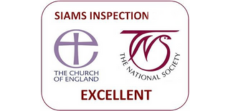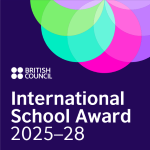Science at St Andrew's
We want to make Science at St Andrew’s as engaging and hands-on as possible, where appropriate. We want to encourage the next generation of scientists, investigators, engineers, and well-rounded individuals, by:
- Modelling and encouraging use of appropriate and accurate scientific vocabulary in relation to area of study
- Allowing plentiful child-led investigations where the pupils investigate answers to both their own and given questions
- Inspiring and exciting by teaching, visits and/or visitors demonstrating scientific experiments
- Learning about key areas of chemistry, biology and physics depending on their learning stage
- Making predictions using prior knowledge and analyse results of investigations
- Exposing children to relevant real-life examples of scientific theories where possible to deepen understanding
Science Curriculum Overview
Science news
Science Club
Year 3 & 4 had lots of fun at Science Club! The children were so enthusiastic and engaged every single week, actively bringing their own investigation ideas to sessions. We looked at a variety of pupil-led investigations ranging from ‘What material makes the best lava lamp?’ to ‘What sized balloon makes the highest CD hovercraft?’ One week, the children heated different metals to produce different colour flames, making their own mini-firework show on the Bunsen Burner! The children took part in a variety of STEM activities from making wind powered cars and crafty rafts to tie dye milk and acid & alkaline rainbows.
Pupil-Led Investigations & Science Poster Competition
Throughout British Science Week, students across the school engaged in pupil-led investigations, working in teams to explore their own scientific ideas and questions. These experiments focused on the five key enquiry skills: observing over time; pattern seeking; comparative & fair testing; identifying, grouping & classifying; and researching. The children completed experiment posters to showcase their curiosity and scientific inquiry in action.
The winners of our in-school experiment poster competition are as follows, showing off their fabulous posters and prizes:
KS1 – Pola, Keon & Zoe
LKS2 – Daniel, Harry, Ella & Hannah
UKS2 – Bonnie, Grace, Lucy, Sophia & Annelise
Big Science Event Oxford
As the UKS2 winning team, five Year 5 girls visited the Science Oxford Centre for the Big Science Event. They explored the hands-on Exploration Zone before going pond-dipping, discovering and classifying many fascinating creatures. The girls proudly presented their competition-winning poster and investigation to other schools, STEM Champions, and scientists. It was an inspiring day, full of curiosity, discovery, and sharing their passion for science.
Science Workshops
St Andrew's enjoyed two exciting science days! The first, "Time for Science" by AS Creatives, explored timelines and famous scientists through drama. The second, led by Professor Bubbleworks, engaged students with fun, hands-on experiments. From EYFS to Year 6, students were captivated and gained inspiration for British Science Week and our upcoming pupil-led investigations competition.
Lord Williams's Science Experience Day
Lord Williams’s School hosted an exciting Science Experience Day. Gifted and talented young scientists from various schools across the Thame Partnership came together to explore biology, chemistry and physics. The children were divided into year groups and mixed with peers from other schools. Throughout the day, they engaged in four hands-on activities: creating lemon batteries in chemistry, exploring the photosynthesis of pond weed in biology, immersing themselves in a planetarium experience, and participating in the challenge of building the slowest marble run. A heartfelt thank you goes to the science teachers at Lord William's for their efforts in organizing this memorable day.
Related Blog Posts
Science - Pupil-Led Investigations & Science Poster Competition 2025
Pupil-Led Investigations & Science Poster Competition 2025
Throughout British Science Week, students across the school engaged in pupil-led investigations, working in teams to explore their own scientific ideas and questions. These experiments focused on the five key enquiry skills: observing…
Pupil-Led investigations
Pupil-Led Investigations & Science Poster Competition 2024
Throughout British Science Week, students across the school engaged in pupil-led investigations, working in teams to explore their own scientific ideas and questions. These experiments focused on the five key enquiry skills: observing…
Science Club
Science Club March 2024
Year 3 & 4 had lots of fun at Science Club! The children were so enthusiastic and engaged every single week, actively bringing their own investigation ideas to sessions. We looked at a variety of pupil-led investigations ranging from ‘What material makes the best lava…



.png)

.png)
.png)
.png)
.png)
.png)
.png)